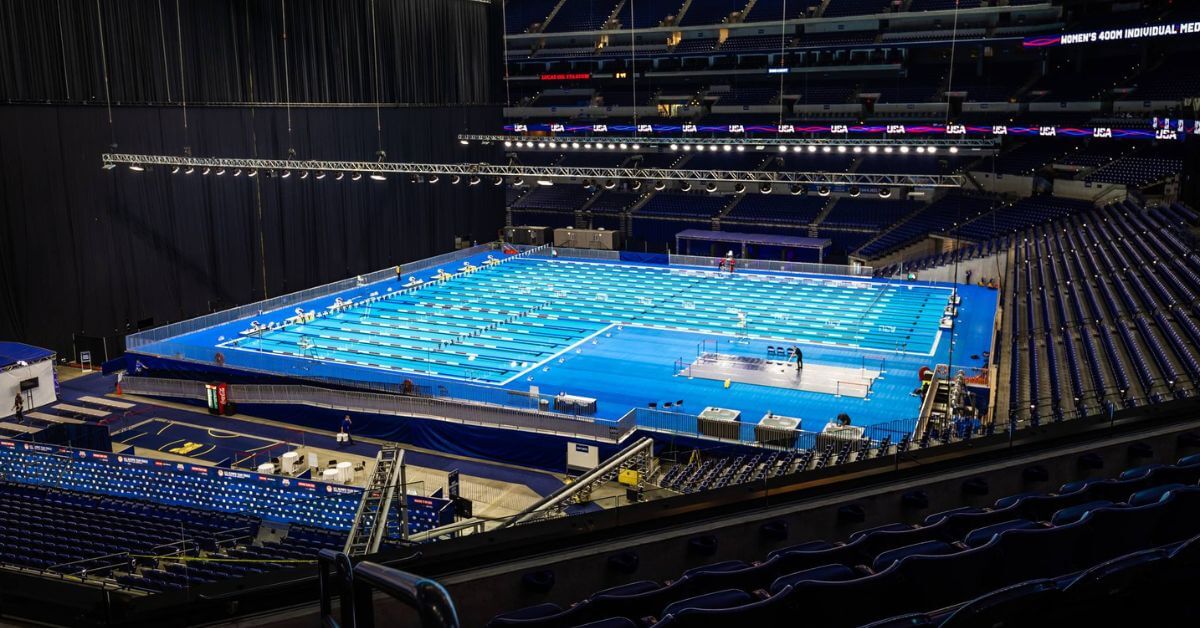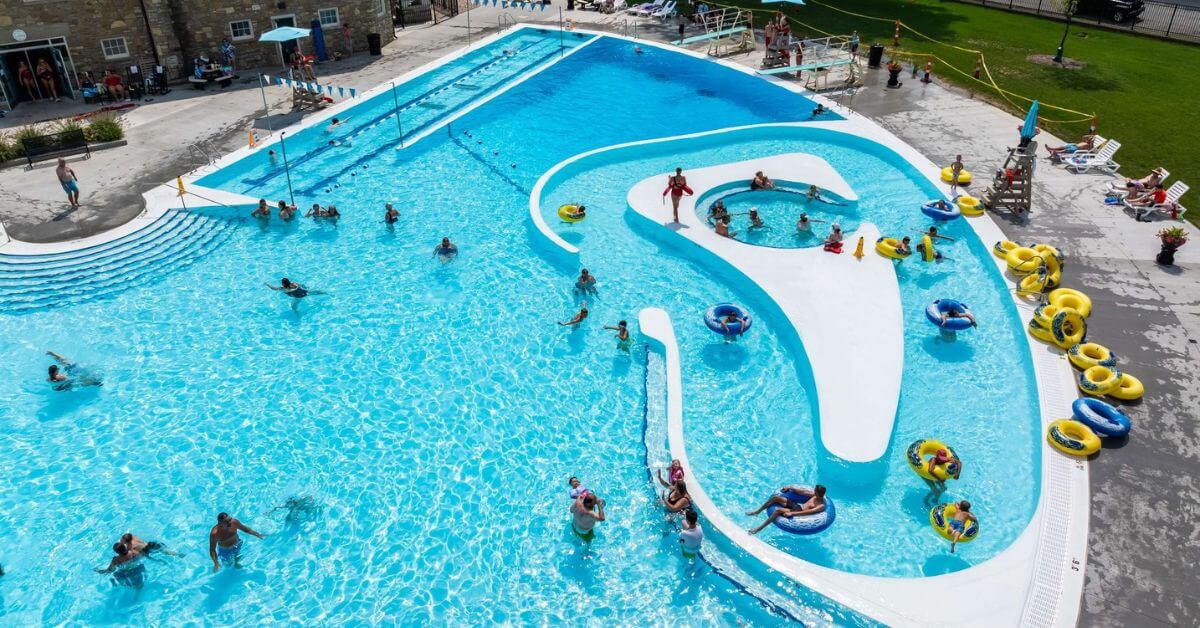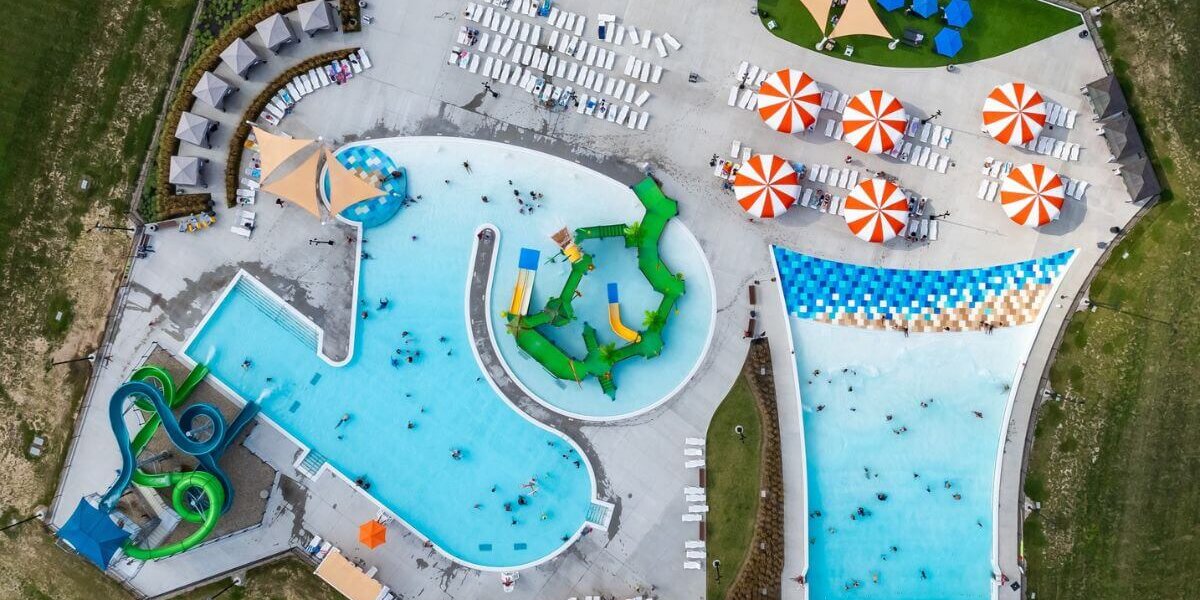Swimming pools and spas have become key features in residential properties, luxury resorts, and recreational facilities, offering relaxation and recreation for individuals of all ages. With increased awareness about environmental impacts, adopting sustainable practices in commercial pool installation can significantly benefit the environment and businesses.
Careful planning and execution are necessary to create eco-friendly systems. These key strategies for sustainable pool installation help your business and your clients meet your shared goals of installation longevity, pool efficiency, and environmental preservation. With innovative solutions and best practices, businesses can reduce operational costs while meeting their sustainability goals.
Assessing Site Conditions Before Installation
Proper site assessment is a critical component of sustainable commercial pool installation processes in urban and rural areas. The foundation for eco-conscious construction depends on the installer’s ability to ensure minimal disruption to the surrounding environment and ecosystems. Conducting thorough evaluations helps you identify the natural resources you must preserve during the installation phase.
Choosing a location that maximizes natural light can help reduce reliance on artificial lighting. Position the pool to align with the surrounding landscape to maintain harmony with natural topography. This step also reduces the overall cost of excavation and structural adjustments during installation.
Utilizing Energy-Efficient Equipment
Energy efficiency is a focal point in environmentally sound practices for commercial pool systems. Equipment like variable-speed pumps and solar-powered heaters can significantly reduce energy consumption. Selecting modern, energy-efficient machinery results in an eco-friendly system that also cuts down long-term utility costs.
Installing smart controls will further optimize energy usage for pool heating, circulation, and filtration systems. These systems monitor performance and prioritize energy efficiency, using the necessary power only when the pool requires it. Investing in energy-efficient components helps businesses achieve sustainability milestones without compromising functionality.
Choosing Sustainable Materials
Sustainable materials reduce the environmental footprint of a commercial pool installation. Recycled tiles, low-impact decking, and responsibly sourced materials are effective options. These materials contribute to sustainability and successfully enhance the overall aesthetics of the pool complex.
Durable construction materials contribute to longevity while reducing waste generated by repairs. Long-lasting options may have a higher upfront cost but save resources over time. Making informed material choices is important to sustainable pool construction standards.
Installing Water Conservation Systems
 Water conservation is a significant concern for commercial pool operators aiming at sustainability. Implementing pool covers minimizes evaporation, reduces water loss, and the need for frequent refilling. This simple measure can save thousands of gallons of water annually, particularly in hotter climates.
Water conservation is a significant concern for commercial pool operators aiming at sustainability. Implementing pool covers minimizes evaporation, reduces water loss, and the need for frequent refilling. This simple measure can save thousands of gallons of water annually, particularly in hotter climates.
Advanced filtration systems help with water conservation, recovery, and reuse of the pool water. Incorporating rainwater harvesting systems can further alleviate the strain on local water resources. A professional swimming pool installer can efficiently integrate the systems to maximize results.
Integrating Solar Power Solutions
Solar power solutions are excellent additions to commercial pools aiming to operate effectively with renewable energy sources. Pool heating systems powered by solar panels drastically cut energy costs, offering financial and environmental advantages. Harnessing solar energy reduces reliance on traditional, non-renewable power grids.
Solar-powered pool lighting is another innovation that enhances sustainability in commercial pool systems. LED lights powered by solar panels are energy-efficient and long-lasting. Businesses adopting solar solutions demonstrate their commitment to eco-friendly practices while benefiting from energy savings.
Promoting Eco-Friendly Pool Maintenance
Sustainability doesn’t end after pool installation; maintenance practices ensure proper functionality. Switching to non-toxic or biodegradable cleaners allows the pool to stay clean without harming the environment. These products break down naturally, preventing chemical pollution in aquatic systems.
Adhering to CDC guidelines for pool chemistry and maintenance also mitigates numerous health and safety risks for swimmers. They offer detailed, step-by-step instructions for addressing issues such as biological contamination and outline appropriate timelines for resolving specific problems. Additionally, a well-maintained pool operates more efficiently and sustainably over its lifecycle.
Implementing Efficient Pool Heating Practices
Modern technologies offer several methods to make pool heating processes sustainable for commercial facilities. Geothermal heating systems utilize the Earth’s natural heat, minimizing traditional energy usage. This innovative approach delivers consistent temperatures and reduces greenhouse gas emissions.
Using heat pump technology is another effective option for cost-efficient and sustainable pool heating. These systems draw warmth from external air, lowering power consumption significantly. Careful heating system selection is vital for sustainable pool operations, balancing performance and environmental impact.
Designing for Natural Integration
 Designing pools to fit naturally within existing environments is one of the best sustainable practices in commercial pool installation. Landscaping with native plants minimizes water consumption and enhances the surrounding environment. Plant life can also serve as a natural screen for privacy and insulation purposes.
Designing pools to fit naturally within existing environments is one of the best sustainable practices in commercial pool installation. Landscaping with native plants minimizes water consumption and enhances the surrounding environment. Plant life can also serve as a natural screen for privacy and insulation purposes.
Using natural barriers and materials complements the pool with its surroundings, seamlessly integrating with the environment. Such designs save on landscaping costs, requiring fewer artificial interventions. A well-thought-out eco-design demonstrates professionalism and care.
Educating Clients and Staff on Sustainability
Sustainability is a responsibility that extends to clients and staff involved in pool operations. Offering training programs on sustainable pool usage empowers individuals to further incorporate eco-friendly practices into their routines. Such initiatives create awareness and help users contribute to sustainability efforts.
Actively engaging with investors builds loyalty while fostering a commitment to sustainability. Education is invaluable when it comes to sustaining eco-friendly practices long after the initial installation.
Constantly Monitoring and Improving
Constantly monitoring and improving commercial pool operations paves the path toward long-term sustainability and efficiency. Here are key steps to consider:
- Conduct regular system audits: Periodically review your pool’s energy, water, and maintenance systems to pinpoint inefficiencies and identify areas for improvement. Quickly addressing these issues reduces resource wastage and operational costs.
- Stay updated on industry innovations: Keep track of emerging technologies and practices in the pool management industry. Adopting new advancements can help improve sustainability and maintain best practices.
- Implement preventive maintenance: Schedule routine inspections and maintenance to reduce the likelihood of wasteful breakdowns or costly repairs.
- Optimize resource usage: Introduce measures such as automated systems to regulate water and energy usage to use resources wisely without compromising functionality.
- Measure and track progress: Use metrics to evaluate the performance of implemented changes and identify further areas for optimization.
By prioritizing sustainable practices in commercial pool installation and management, businesses can significantly reduce their environmental footprint while optimizing operational efficiency. Incorporating eco-friendly technologies, such as energy-efficient pumps and advanced water filtration methods, ensures that pools operate with minimal impact on natural resources. Regular assessments and timely infrastructure upgrades enhance sustainability by identifying and addressing areas of inefficiency.
Adopting green practices can improve cost-effectiveness, as reduced energy and water consumption translate to lower utility bills. Committing to eco-conscious decisions in all aspects of pool installation and maintenance aligns with global sustainability goals and demonstrates a responsible approach that benefits your business and the planet.
























